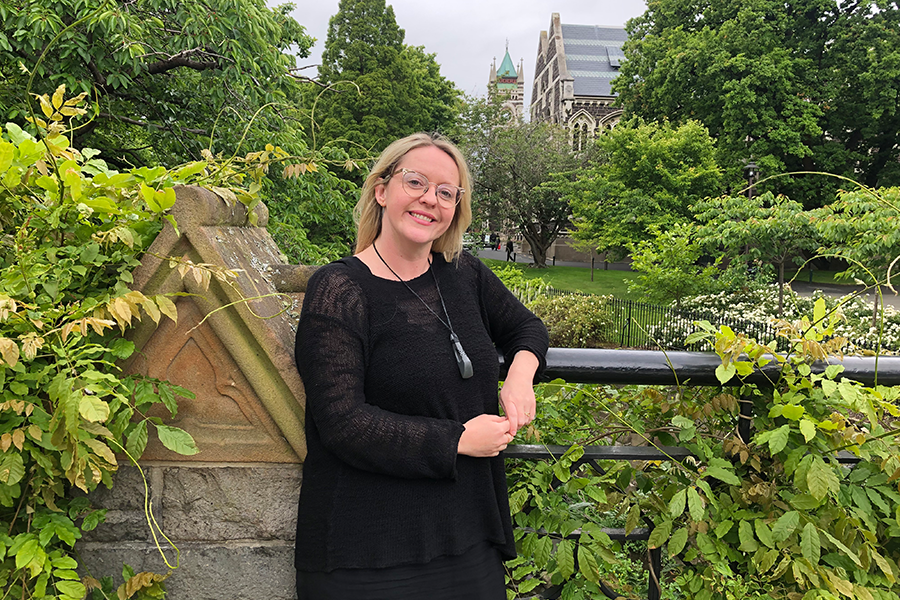
PhD candidate Rachel Billington is interested in what kind of effect social media is having on young people.
What impact is social media having on young people? It’s a question probably many have pondered, but according to PhD candidate Rachel Billington, not many have conducted research on in order to answer.
Rachel, of the Politics and Social Anthropology departments, is interested in political identity formation in young people, and how that relates to their sense of belonging – particularly in online spaces. Her masters research looked into social media, disinformation and the rise of the alt right.
“When I was doing that, I noticed there was this big gap. Just a lot of literature and stuff coming out about how social media can change people, change beliefs, changes people’s minds and shape their political world views, but there’s really nothing on how that’s all impacting young people.”
She defines social media as platforms where the users can create and consume the content. The social media platforms build the platform and create a network where people can gather, she says.
Rachel grew up in the mid-2000s and used social media sites such as MySpace and Beebo. Those platforms did not have the same kind of engagement models that modern-day platforms do, she says.
Her research is looking at social media from that period through to the creation of current engagement algorithms and looking at how things have changed.
Rachel surveyed 494 young people aged between 16 and 19 and interviewed 21 of those 494.
“We just don’t know the effects that is has on young people at this point, because it’s so new. People have grown up so completely immersed, these digital natives, and I don’t think they’ve been given the space to share their own perspectives on it.”
Rachel thinks it’s important to give young people the room to talk about what is has been like growing up online.
“They’re so smart, and they’re so on to it, and a lot of them really perceive that there are a lot of negative impacts in terms of mental health, in terms on attention space, focus, and concentration; they really feel that.”
The young people she surveyed were also aware the social media companies prioritised making money over the wellbeing of their users.
So while young people get a lot out of social media, they also know it can be damaging, and are quite aware and critical of the situation they are in, Rachel says.
Many of the young people she surveyed said they had seen a lot of content they did not give their consent to view, such as porn and gore; “just really nasty stuff that comes along into their feeds”.
“It really effects them, but it’s just normal life.”
All 494 of the young people she surveyed said they had social media and many of them talked about having used Instagram, Snapchat and TikTok. Many refused to get TikTok saying they knew it would be addictive and bad for them.
A few had got rid of Instagram as well, saying they found it “really troubling” when soft-core pornography appeared in their feed.
One young man she spoke to got rid of his smartphone completely because he wanted to live without social media in his pocket.
“He still used social media but he used it from his computer. He wanted it to be a more intentional, more purposeful thing where if he wanted to engage with social media he would sit down, make a choice and actually use it as a tool.”
In getting it out of his pocket, he felt he could get a sense of control back over his life.
“Which I think a lot of us can relate to.”
